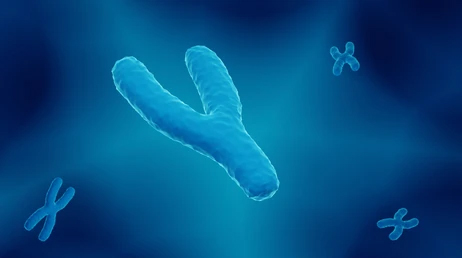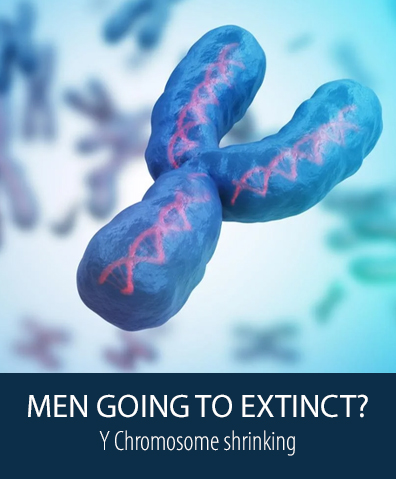Y Chromosome is Disappearing!
The Y chromosome, unique to males, plays a crucial role in determining male sex and reproduction. However, recent studies have sparked a fascinating conversation about the future of this chromosome, suggesting that it might be shrinking and could eventually disappear. This raises significant questions about the future of human evolution, genetic health, and the implications for gender and population dynamics.

Understanding the Y Chromosome
The Y chromosome is one of the two sex chromosomes in humans, with the other being the X chromosome. While females have two X chromosomes, males have one X and one Y chromosome. The Y chromosome carries the SRY gene, which is responsible for triggering male development in the embryo. Despite its essential role in determining male sex, it contains far fewer genes compared to the X chromosome, and over millions of years, it has significantly decreased in size.
The Shrinking Y Chromosome: What’s Happening?
Scientists have observed that the Y chromosome has been gradually losing genes over time. Some researchers suggest that if this trend continues,it could disappear within a few million years. This phenomenon is partly due to the it’s inability to recombine effectively with the X chromosome during reproduction, leading to a gradual loss of genetic material over generations.
Implications for Genetic Health and Human Reproduction
The potential disappearance of the Y chromosome raises important questions about genetic health and human reproduction. If the Y chromosome were to vanish, it could fundamentally alter the biological mechanisms that determine male sex. However, some scientists believe that other mechanisms or chromosomes could evolve to take over it’s role, ensuring the continuation of male development and reproduction.
This shift could lead to new reproductive strategies and adaptations in humans. For example, certain species have already developed alternative methods for sex determination without a Y chromosome. Understanding these processes could provide insights into how humans might adapt to such genetic changes in the future.
The Role of Genetic Health in Human Evolution
Genetic health plays a critical role in human evolution, influencing everything from reproduction to disease susceptibility. The shrinking Y chromosome could have implications for the genetic diversity of the human population, particularly in how it affects male fertility and reproductive success. As it continues to evolve, it may lead to changes in the prevalence of certain genetic conditions or influence the overall health of future generations.
Are Men Facing Extinction?
The idea that men might face extinction due to the disappearance of the Y chromosome is an intriguing but complex topic. While it’s true that the Y chromosome is shrinking, the timeline for its potential disappearance spans millions of years, allowing ample time for alternative genetic mechanisms to evolve. Additionally, scientific advances in genetics and reproductive medicine could mitigate any negative impacts on male fertility or population dynamics.

Long-Term Implications for Gender and Population Dynamics
The potential changes in the Y chromosome could have broader implications for gender and population dynamics. As our understanding of genetics evolves, so too might our definitions of gender and reproduction. In a world where the it is no longer necessary for male development, new forms of reproduction technolohy or gender identity could emerge, challenging traditional concepts of gender roles and societal norms.
These changes could also influence population dynamics, particularly in terms of how genetic diversity is maintained and how populations adapt to environmental pressures. The study of it’s evolution offers a window into the future of human evolution and the potential paths our species might take.
Conclusion: The Future of the Y Chromosome and Human Evolution
The shrinking Y chromosome is a fascinating example of how genetics can shape the future of human evolution. While the idea of men facing extinction may seem far-fetched, the potential disappearance of the Y chromosome raises important questions about the future of human reproduction, genetic health, and gender dynamics. As science continues to unravel the mysteries of our genetic code, we may find new ways to adapt and thrive in an ever-changing world.
At SimpleeKare, we recognize the importance of understanding genetic health and its impact on overall well-being. As research on the Y chromosome and its implications continues, staying informed about these developments will be crucial for both individuals and healthcare professionals. If you have concerns about your genetic health or reproductive future, our team of experts is here to provide guidance and support.

Leave a Reply